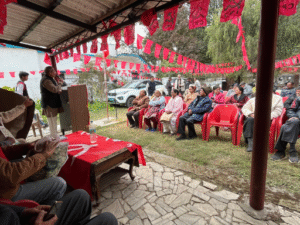Veteran market investor Basant Maheshwari recently sparked a debate on social media by questioning why the Indian government has not restricted Indian passport holders from travelling to Turkey and Azerbaijan. His comments come amid growing outrage over these countries’ support for Pakistan following India’s military action, Operation Sindoor. In a post on X (formerly Twitter), Maheshwari remarked, “Why can’t the government stop Indian passport holders from travelling to Turkey and Azerbaijan? Otherwise, people have this Ghazni tendency of forgetting too soon.”
Mere moments after his post, several users joined the call for a travel ban, echoing his sentiments. One user suggested the government classify Turkey and Azerbaijan as high-risk (Level 4) zones, proposing that Indian authorities stop travellers at immigration by citing these nations as “dangerous places.” Another urged the Ministry of External Affairs (MEA) to implement an immediate travel ban similar to the one in place for Yemen, even suggesting the revocation of passports for non-compliant travellers.
Some users took their concerns further by tagging the Prime Minister’s Office and the Union Home Minister’s Office, demanding broader restrictions. These included banning travel not only to Turkey and Azerbaijan but also to Pakistan and Malaysia. Another user advocated for punitive financial measures—such as a Rs 5 lakh tourism/passport fee for visiting Turkey and Azerbaijan—followed by scrutiny from the Enforcement Directorate (ED) and the Income Tax Department.
Despite the uproar, travel to these nations has been on the rise. In 2024, Turkey witnessed a 20.7% increase in Indian visitors, reaching 3.3 lakh tourists. Azerbaijan experienced an even steeper climb, with Indian tourist numbers soaring by 108% to 2.43 lakh. According to recent data, Indian travellers spent an average of $972 (approximately Rs 82,922) per visit in Turkey last year.
As geopolitical tensions spill into travel and tourism, it remains to be seen whether the Indian government will take any concrete steps—or if this storm will pass like many others in the digital age.







